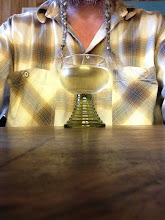Waugh reviewed, glowingly, but with reservations, the English edition of The City of Tomorrow for the Observer in 1928. He has reservations about L-C's vision surviving in war, and he wonders, also prophetically, how modernism might weather, but overall he supports a bright view of possibilities, he seems quite willing to salute the Utopian flag.
In this first novel, of course meant to be funny, he deftly parodies, but with lashings of comic despair, the insuperable, cloying absurdity of British society, with it's Lady Circumference's and Lord Tangent's, it's Bollinger Clubs and crappy public schools, whose education never fails to save the privileged when they get, periodically and inevitably, 'in the soup'. There is hardy a character who is not grotesque.
So while the anti hero, the lack lustre Paul Pennyfeather, is tossed around on the waves of fortune, those fortunes are created by a cast of even more preposterous characters that remain the immutable fabric of Britain. Perhaps Otto is not so bad. It may be no co-incidence that the title mirrors Spengler's desperate 'Decline of the West' and it's inauguration of fatalistic post-modernism, where nothing can change. In the sense that even the plot is circular, for even after his adventures Pennyfeather ends up back where he started, back to square one, there is, essentially, no progress, literally or metaphorically. Meanwhile it was the architect, Prof Silinus, who was there at the end to explain to him the unfortunate facts of life, and all of this, of course, underlines the tragic nature of the modern endeavour, and it's necessity.














